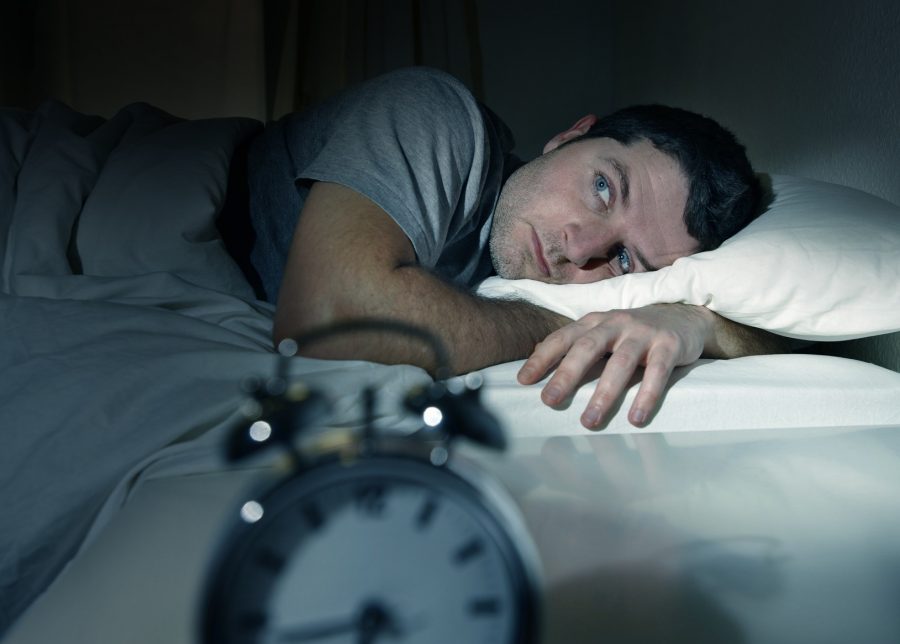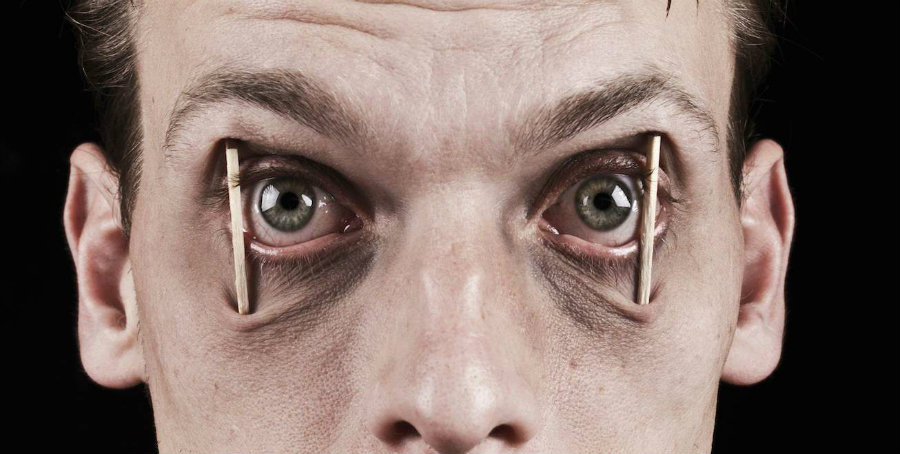Sleep deprivation makes the brain eat itself, increasing the chances of chronic sleep loss and the development of Alzheimer’s disease and other types of dementia, according to a new study made by the Marche Polytechnic University in Italy.
It is well known that sleeping is necessary for the brain to recharge its energy levels. However, there are many other consequences derived from the lack of sleep. Cells of sleep-deprived brains eat synapses and other connections affecting our capacity to focus and to learn, causing long-term and permanent damages to the organism.

The consequences of having a sleep-deprived brain
Brains need to receive enough sleep hours because that way they recharge energy and also because when people sleep, their brains clear away all these toxic byproducts that are no longer needed. Healthy brain connections are protected when the brain cells eat their old and not longer necessary equivalents. However, this process appears to continue in an unhealthy way, when there is a chronic lack of sleep. According to the researchers, the sleep-deprived brain clears more neurons and synaptic connections than it should. Therefore they say that the brain eats itself. Sadly this damage might be impossible to reverse.
Neuroscientist, Michelle Bellesi from the Marche Polytechnic University in Italy, explains that neurons are constantly being refreshed by two types of glial cells. The microglial cells do the “astrocytic phagocytosis” which is a process where these cells remove all the cells that are worn out and old. In fact, “phagocytosis” means “devour” in Greek.

As well, there is another type of glial cells, the astrocytes, which are responsible for removing all the unnecessary synapses, which are the connections in the brain. These processes occur when we sleep. Scientists say that losing sleep accelerates the process until the brain harms itself. The astrocytes eat the healthy parts of brain connections when it doesn’t get enough sleep.
The lack of sleep increases the activity of astrocytes and microglial cells in the brain
To prove this theory, Michelle Bellesi alongside a group of scientists examined the brains of mice, to find out how mammalian brains respond to the lack of sleep.
He divided the mice into four groups. The first was well-rested, they could sleep as much as they needed (6-8 hours). The second group was periodically woken up. The third one was sleep-deprived having to stay awake for an extra 8 hours, while the last group of mice was awake for five days on a row.

When the scientists studied the difference in the activity of the astrocytes in the synapses, they saw 5.7 percent activity in the group that received enough sleep (the first one), while in the second one the activity was of 7.3 percent. When they compared the activity in the sleep-deprived mice of the third group, they saw that the astrocytes had increased their activity to 8.4 percent, eating parts of the synapses just like microglial cells eat waste. In the fourth group, the same thing happened, the activity of the astrocytes was of 13.5 percent.
Sleep deprivation is associated with neurodegenerative diseases
When they studied the activity of microglial cells in all four groups, they also noticed that it had increased as the groups had fewer hours of sleep. The last is worrisome because an uncontrolled microglial activity is linked to the development of neurodegenerative diseases and dementia such as Alzheimer’s.

“By contrast, only chronic sleep loss activates microglia cells and promotes their phagocytic activity … suggesting that extended sleep disruption may prime microglia and perhaps predispose the brain to other forms of insult.” the study reads. “We already know that sustained microglial activation has been observed in Alzheimer’s and other forms of neurodegeneration.”
Other research has shown that chronic loss of sleep is related to the apparition of brain plaque that is also one of the possible causes of Alzheimer’s disease. The truth is that Alzheimer’s-related deaths have augmented by 50 percent in the last two decades, as many people report struggling to have a reasonable amount of sleep each night.
Previous studies have highlighted the incredible amount of consequences of not having enough sleep. Sleep-deprived people are not that able to process everything they learn, and they are more likely to show signs of depression. Lack of sleep also affects the capacity to focus, to remember and to be alert.
The hypothesis proposed by this scientists is that the human brain’s response would be very similar to the response saw in the brain of the mice. They think that this process cannot be reversed, not even if people tries to catch up on sleep.
Source: The Inquisitr
